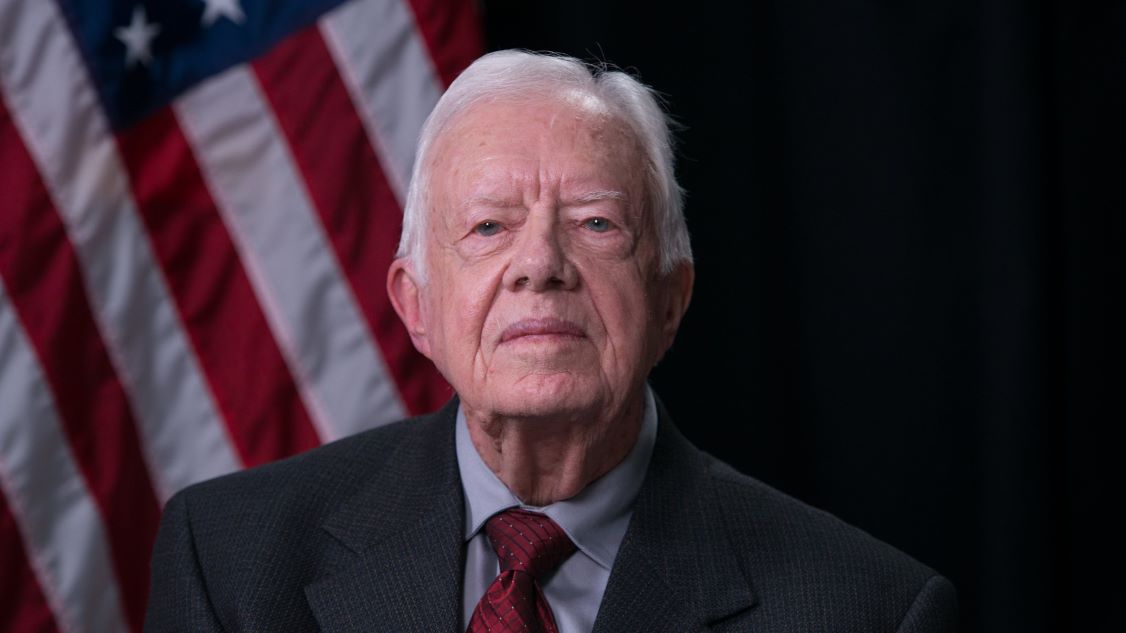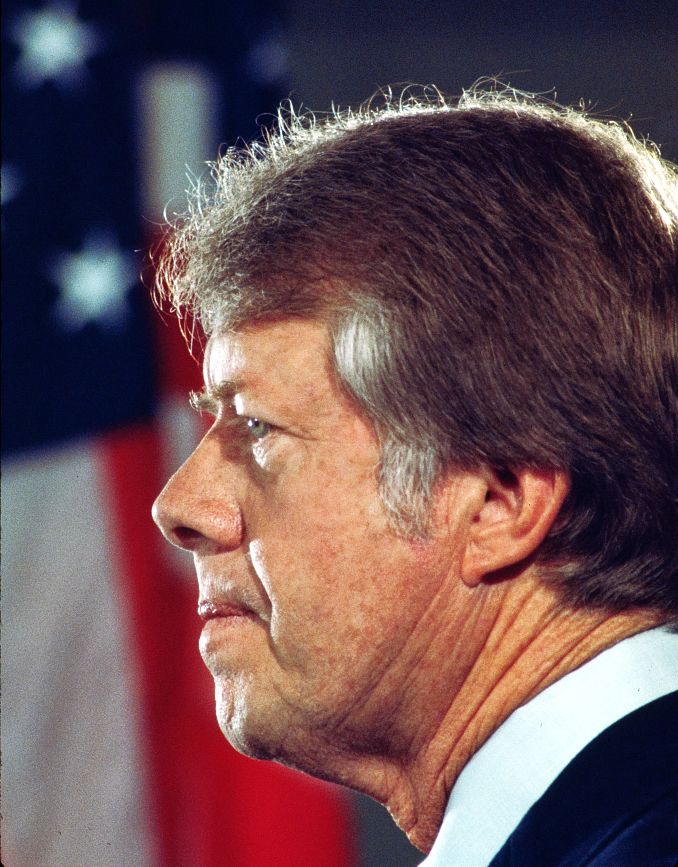Authors:
Historic Era: Era 10: Contemporary United States (1968 to the present)
Historic Theme:
Subject:
Spring 2023 | Volume 68, Issue 2


Authors:
Historic Era: Era 10: Contemporary United States (1968 to the present)
Historic Theme:
Subject:
Spring 2023 | Volume 68, Issue 2

Editor’s Note: Kai Bird won a Pulitzer Prize for American Prometheus: The Triumph and Tragedy of J. Robert Oppenheimer. He adapted the following essay from his most recent book, The Outlier: The Unfinished Presidency of Jimmy Carter.
Jimmy Carter was perhaps our most enigmatic president. He is often celebrated for what he achieved in his four-decade-long post-presidency. Conservatives and liberals alike accord him the accolade of “the best ex-president.” But most citizens and the punditocracy routinely label his a “failed” presidency, ostensibly because he failed to win reelection.
But in truth, Carter is sometimes perceived as a failure simply because he refused to make us feel good about the country. He insisted on telling us what was wrong and what it would take to make things better. And, for most Americans, it was easier to label the messenger a “failure” than to grapple with the hard problems. Ultimately, Carter was replaced by a sunny, more reassuring politician who promised that he would “make America great again.”
Conventional wisdom has not given high marks to Carter’s presidency. One historian described him as an “utter failure as a national leader.” Another labeled his a “mediocre presidency.” He was “long on good intentions,” complained this writer, “but short on know-how.” Gore Vidal called him “a decent man, if an inept politician.”

Carter is also perceived as having been a “weak” or hapless executive — the victim of runaway inflation, a militant ayatollah, and even a “killer rabbit.” Much of this is a simplistic caricature. No modem president worked harder at the job, and few achieved more than Carter in one term in office. Both his domestic legislative record and his radical foreign policy initiatives made his presidential term quite consequential. As a politician, most of the time, he was a non-politician, uninterested in the cajoling and dealmaking of Washington. This made him both an outsider and an outlier — “a person or thing situated away or detached from the main body or system.”
Far from being weak or indecisive, Carter repeatedly demonstrated his willingness to make tough decisions, despite the predictable political consequences. It may have been naiveté, but he invariably rebuffed his advisers when they cautioned him to do something because it was politically popular. They knew he was just as likely to do the opposite.
Indeed, Carter displayed an unbending backbone and moral certitude in dealing with such politically fraught issues as the Israel-Palestine conflict, the Panama Canal, nuclear weapons, the environment, and consumer protection. His greatest foreign policy triumph — the Camp David Accords, which led to a peace treaty between Israel and Egypt — never would have happened but for Carter’s vision.
Carter’s insistence on